Make it yours
Every experience is customised to be just right for you.
WILDLIFE VOLUNTEERING: THE RED FLAGS MOST PEOPLE MISS
Learn more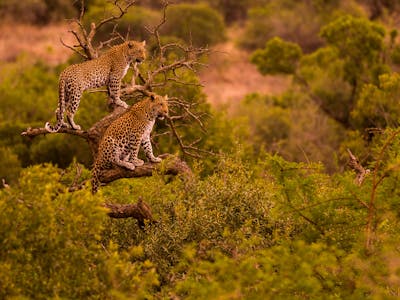
A vast maze of waterways known as the Delta, surrounding bushlands and Kalahari desert vegetation make up Botswana’s Okavango region - one of Africa’s last true wildernesses. Home to the largest population of elephants on Earth, this remote landscape is also one of the last strongholds of the endangered African wild dog.
With vast areas to explore, you’ll join an intrepid team in this UNESCO World Heritage Site, monitoring species to support the Government of Botswana’s ambitious goals for wildlife conservation. You’ll also find yourself covering some serious distances and learning bushcraft skills from local expert guides along the way.
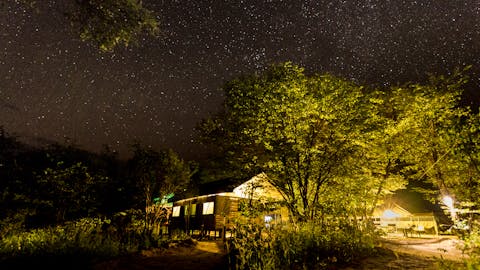
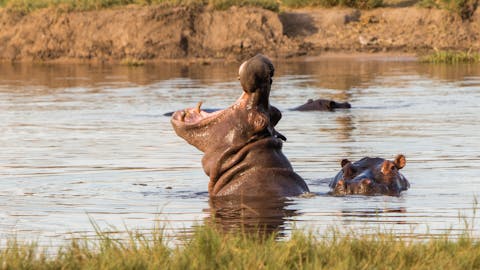
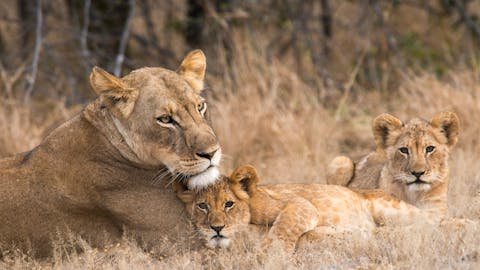
From climate change to pollution, the Okavango region is under threat from all directions. Joining this project, you’ll play a vital role in protecting the Delta and the equally important buffer zone that surrounds it for future generations.
A UNESCO World Heritage Site and RAMSAR wetland, the Okavango region of Botswana is famous for its awe-inspiring landscapes and incredible wildlife. As well as being one of Africa’s largest intact ecosystems, it’s also one of the most biodiverse - giving you the chance to explore a beautiful and untamed wilderness.
The wildlife in the Okavango area is truly wild. Elephants, wild dogs, lions, giraffes, hippos and other species roam freely across vast natural environments and aren’t habituated to human observers - offering you the chance to observe their natural behaviour in truly wild settings.
To monitor wildlife in the great expanse of the Okavango region, you’ll travel off-road to multiple remote areas, stay in two off-grid and unfenced camps, visit the local town Maun, and have the option to see the Delta from the sky with an airplane flight and from the River Kwai on a canoe experience.
You’ll be part of a highly qualified monitoring team headed up by the leading lion ecologist in Botswana and PhD Wildlife Management Researcher, alongside Botswanan trackers and guides, who are all passionate about sharing their knowledge and expertise.
This project supports the objectives of Botswana’s Department of Wildlife and National Parks (DWNP). It was created in partnership with longtime Okavango Delta ecologist Christiaan Winterbach.
Giraffe population numbers have plummeted over the last 30 years in much of Africa. As a volunteer, you’ll contribute to the long-term protection of this species by proactively monitoring populations and movement patterns as well as updating and maintaining ID kits.
The experience of living in such a remote and basic bush camp wouldn’t be complete without learning a few bush survival skills. You may even learn how to make and bake bread on a fire.
Glide through the waterways of the Okavango Delta in a traditional dug-out canoe. Owned and run by the local Khwai community, this eco-friendly activity allows you to explore the beauty of the Delta while supporting the local community and conservation efforts.
During your experience, you’ll get to participate in a game drive through one of Africa’s most biodiverse wildlife reserves.
You’ll get involved in every aspect of project life. Depending on the monitoring and conservation priorities at the time, this will include a range of the following activities.
The project’s main goal is to monitor the movement and populations of various species within the Okavango Delta. As part of the monitoring work you will get to observe or assist:
Giraffe population numbers have declined over the last 30 years in much of Africa. You’ll contribute to the project’s efforts in taking proactive steps to monitor this trend. You could observe or assist:
The Okavango region is a true wilderness where you’ll get to roll up your sleeves and join in with all aspects of project life. You will get to assist or gain insights into:
You’ll learn about the behaviour, biology, ecology, and conservation issues of species living in the Okavango region, as well as various bush skills. Depending on the project’s work at the time, this will include a range of the following topics.
This project contributes to a variety of the UN’s Sustainable Development Goals. As part of the team, so will you.
The content of this publication has not been approved by the United Nations and does not reflect the views of the United Nations or its officials or Member States.

All volunteers acquire knowledge of practical conservation skills, how human actions can affect wildlife and how they can minimise this effect - and have access to the same standard of education regardless of sex and background.

The Okavango Wilderness Project provides equal employment opportunities for local women and men and equal volunteering opportunities for women and men outside the local community.

The Okavango Wilderness Project supports the health of the dry delta ecosystem, which is intrinsically linked to the health of the wet delta - the main source of water to one million people in Botswana, Angola and Namibia.

The Okavango Wilderness Project has implemented a modern solar energy system to power the base camp efficiently and sustainably.

The Okavango Wilderness Project routinely employs young people between 15 and 24 and provides equal employment opportunities for local men and women. Volunteers provide both economic and physical support, which directly contributes to the protection of all the species in the Okavango Delta.

Through the financial support generated by self-funded international volunteers, the Okavango Wilderness Project have been able to implement a solar energy system that powers the base camp - thereby developing resilient and sustainable energy infrastructure in Africa.

The Okavango Wilderness Project builds sustainable and resilient buildings, such as its base camp, using materials that are locally sourced from within the local area. The project also protects natural heritage through the conservation of iconic African species.

The Okavango Wilderness Project promotes responsible tourism in a variety of ways: through the creation of local jobs; by educating international and local visitors how to live in harmony with nature; and in its vital conservation work.

Weather systems are very important for the water cycle in this region. Lead ecologist, Christiaan Winterbach, educates volunteers on how climate change is affecting these weather systems.

The Okavango Wilderness Project takes urgent action to halt biodiversity loss and prevent the extinction of threatened species within the Kavango-Zambezi Transfrontier Conservation Area, a massive area of protected habitat that is home to some of the most biodiverse populations of flora and fauna species in the world.
By monitoring and protecting a variety of species, the project prevents the degradation of ecosystems in which these animals play a crucial ecological role.

The activity of the research team at the Okavango Wilderness Project acts as a deterrent to poachers and helps reduce the unethical practices associated with their activities.

Through the Okavango Wilderness Project’s partnership with us, they draw in financial resources that are used to fund conservation and provide support to their community partners in southern Africa.
Related experiences
Explore programs similar to this one.
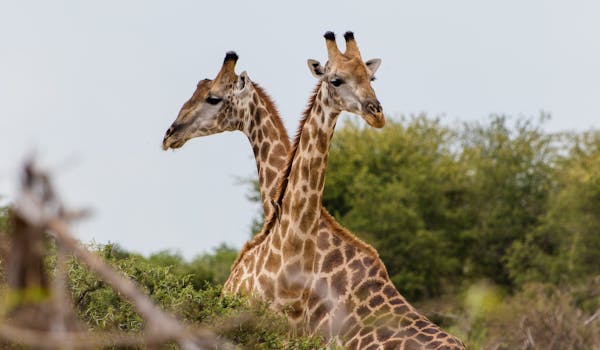
Visit three different projects in two countries to truly understand wildlife conservation in Africa
View details for From Famous Kruger To Remote Okavango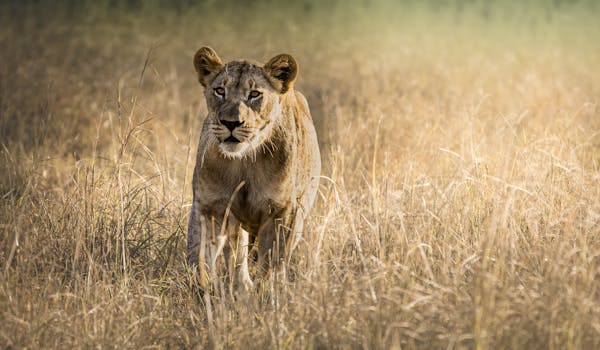
Go behind the scenes on a Big 5 reserve and join one of the biggest conservation success stories
View details for Phinda Wildlife Research Project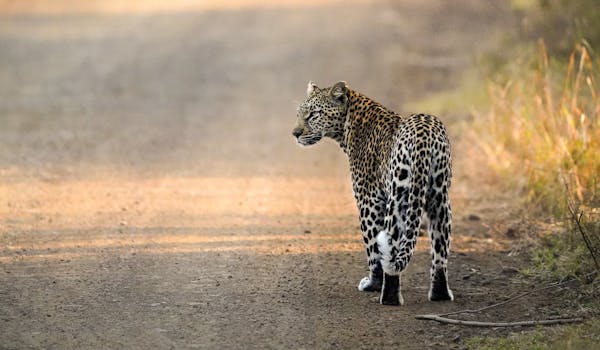
Get a unique behind the scenes experience in one of the largest and most important conservation areas in Africa
View details for The Vikela Kruger Conservation Experience
Go off the beaten track in a remote bush camp, and monitor lions, elephants and raptors
View details for Umsele Field Conservation Project - In Partnership With Balule & EWT